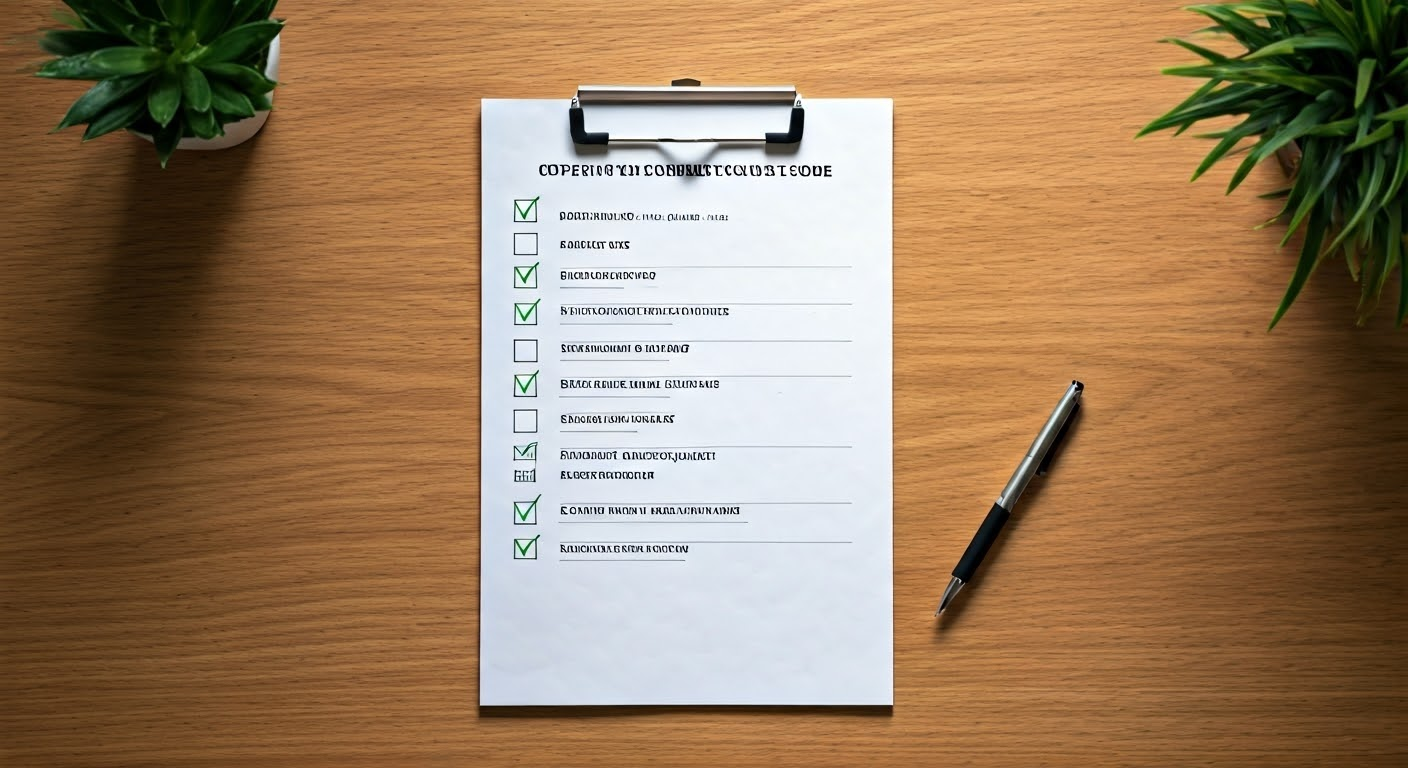


Your credit score is very important for your money matters. It can affect if you get loans, credit cards, or even a place to live. Things like what is in your credit report and your payment history really matter. Some people may feel that making their credit better is hard. But it can be done if you use the right steps. These can include finding mistakes in your credit report or keeping up with your payment schedules. This guide will show you things you can do now to raise your credit score fast. It will also help you stay on track for good results in the long run.
At its core, a credit score is a number that shows how likely you are to pay back money you borrow. It helps lenders, like banks, know if you will be a good customer. These scores usually go from 300 to 850. When you have a higher number, the bank or other lenders often think you are less risky.
The FICO score is one of the most well-known kinds of credit scores. It is based on facts in your credit profile. This includes your total debts, how well you pay bills on time, and the length of credit history you have. For example, if you keep your available credit high and you keep old credit accounts open, it can help raise your score.
Lenders do not just look at your credit score for loans. They also check it when you want to rent a house or get insurance. Having a good credit score can help you get better deals and more choices. But, if your score is not good, you may look risky. This can mean higher costs or fewer options for you.
Several things affect your credit score. The biggest part is your payment history, which makes up 35% of the score. If you miss payments, it can have a negative impact. Staying up to date with each payment helps your score stay strong.
Next, your credit utilization—how much of your available credit you use—counts for 30%. It is best to keep your utilization rate below 30% to keep your credit score in good shape.
The length of credit history also matters. If you have older accounts, it shows you have had credit for a long time and can manage money well. New accounts can lower your average loan or credit card age for a short time. Things like what type of accounts you have and new checks into your history also matter, but they do not affect the score as much.

Credit monitoring services also help. They let you know when something in your score or your credit changes. You will get real-time updates and also have some protection from identity theft. If you keep checking your credit score and make smart decisions, you can stay on top of your credit health.
Getting your free credit report is one of the best ways to spot any problems with your credit score. You have the right to a free credit report each week from the three big bureaus—Equifax, Experian, and TransUnion. You can get them at AnnualCreditReport.com.
It is very important to go over these reports with care. Look for mistakes, such as a payment that is shown as late even though you paid it on time, or any old negative notes that should not be there. These can hurt your credit standing. If you find errors, tell the bureaus right away and get them fixed.
When you check your reports often, you can see recent credit activity, find issues early, and avoid trouble when you try to get new credit or take out a loan. Avoiding money mistakes is the best way to build good credit habits and in the long run, it helps to keep your credit score safe.
Checking your credit helps you see changes in your score. You can also learn what is shaping your credit profile. There are credit monitoring tools that make this easy. They send you real-time alerts and break down details for you.
These tools help protect you from fraud. They also keep you aware of how reliable payments and your credit utilization affect your score. If you stay on top of these, you can spot issues early. It helps you catch problems before they hurt your credit history for a long time.

At the same time, keep an eye on your credit utilization. You can do this by lowering the amount you owe on your cards and keeping your usage low. Be careful with new credit inquiries, as having too many can lower your score. Also, adding different types of credit, like installment loans or opening other accounts, can help your credit mix. These steps can give you good and lasting results for your credit score.
Errors on your credit report can pull down your score for no good reason. Start by taking a good look at that report. Check if there are any wrong payment notes, accounts you do not know about, or debt numbers that do not match what you owe.
You can get free reports through AnnualCreditReport.com and see what is on file at all the major bureaus. If you find negative information that is false, you will need to dispute that. Get proof, like receipts, and make a note of the problem. Then send your paperwork and the problem to the bureau that listed the mistake.
Fixing these errors can help give your score a quick boost. When the wrong info is fixed, your credit profile will look better right away.
Making payments on time is key to having good credit. Late payments can hurt your credit score, and these marks may stay for up to seven years.
Set up automatic payments to make sure you do not miss any due dates. If you are late on a payment, pay it as soon as you can. After that, talk with your creditors. Ask them to stop reporting the late payment, especially if this only happened once.
It is important to always pay on time. When you keep up these good habits, your credit profile will get better. Your payment track record will help you get good credit over time.
Credit utilization means the percent of your available credit you use. It is a big part of your credit score. It makes up about 30% of how your credit score is worked out.
To help manage your credit utilization well, try to pay down what you owe on your credit cards before your billing cycle ends. You can use calendar reminders to keep on top of payments. If you get a tax refund or some extra money, put some of that toward your debts.
Another way to lower your utilization rate is to ask for a higher credit limit from your card provider. If you do this and keep your spending the same, you use less of your available credit. Aim to keep your utilization rate below 30%. For a higher credit score, it is best to stay in the single digits if you can.
Frequent hard checks on your credit can lower your score. Lenders may see many requests in a short period as risky. These hard checks can stay on your report for up to two years.
To keep your score safe, plan your applications. Try to use “soft checks” when you can, like during prequalification. These do not hurt your score. If you are comparing rates for auto loans or mortgages, do it within a 14-45 day window. This can group the checks together and help you have less impact on your score.
Try not to make too many new applications. This will help keep your score in its best range.
Your credit mix shows how well you can handle different kinds of accounts, like credit cards and installment loans. This is just 10% of your score, but it helps show that you are flexible with your money.
If you add an installment loan or a credit-builder account, it may help your credit mix. If you often use credit cards, you can look at other choices. Try things like loans or a secured credit card. But do not open accounts just to make your score go up—only apply when you have to.
Using different types of accounts in a good way makes your profile stronger. It also shows that you use money in a smart way.
Keeping good credit takes steady work. Start by checking your credit score every month. This way, you see any changes and can catch problems early. The best way to pay your bills on time is to set up payments to happen automatically. This helps make sure you do not pay late.
It is also smart to keep your credit utilization low. Use only a small part of your credit limit. Stay active with your accounts. Doing these things keeps your credit score strong. Lenders will see that you are responsible with money over time.
Keeping track of your credit is important to keep your score strong. You can get free reports from big companies like Experian, Equifax, and TransUnion all through the year. When you look at your report, check for anything that does not seem right, such as accounts you did not open or quick drops in your score.
There are online apps that make this job easier. They can give you updates on your score every month and let you see recent activity right as it happens. If you spot wrong information or signs someone used your credit, you can fix the problem fast.
Make it a habit to check your credit often. This helps keep your money in good shape now and for the years to come.
Automatic payments help you pay your bills on time. This helps build your payment history. Most banks and lenders offer this on their online sites.
When you link your accounts to pay bills by the due dates, you take out mistakes or being busy that can cause late payments. Make sure there is enough money in your account. This helps you avoid any fees if you do not have enough money.
Setting up a better way to pay bills on time not only keeps bad marks away, but it also helps you build good habits for your money. It helps you have good trust with your payments for many years.
Improving your credit score is more than a goal. It is an important step to reach good financial health and stability. You need to know about the things that affect your score. These include payment history and credit utilization. When you know about these, you can make smart choices to help your credit profile.
It is good to check your credit report often. Fix any errors you find in it. Doing this can make your score better. You also need to keep your credit card balances low. Setting up automatic payments makes sure you do not miss any bills. These steps help you stay on track.
When you follow these ways, you can get a higher credit score. You will have better loan offers and more chances to get credit. If you want advice for your needs, you can get a free consultation anytime.
Improving your credit score will depend on your own situation. If you fix mistakes, you might see changes in a short period of time. Making sure you pay your bills on time and working on your credit utilization can take a bit longer. You will need some months for these steps to help. The time it takes to see a big change in your credit score can be different for each person.
Yes, you can make your score better fast by paying back your outstanding debt. This works well if you pay down high credit card balances. Try to keep your credit card balances below 30% of your total limit. Also, if you can make payments before the statement period stops, the credit bureaus may show your better balance sooner.
Closing an old account can hurt your credit score. This is because it lowers the average age of your accounts and cuts down on your available credit. While you do not always need to keep cards you do not use, keeping older accounts open often helps you build a healthy credit history over time.
Understanding what influences your credit score makes it much easier to interpret credit checks. Discover more insights and tips at the Finance Monitoring Guide.
(+1) 5165229807
info@financemonitoringguide.com
500 Marquette Ave NW, Suite 1200 Albuquerque, NM 87102 United States